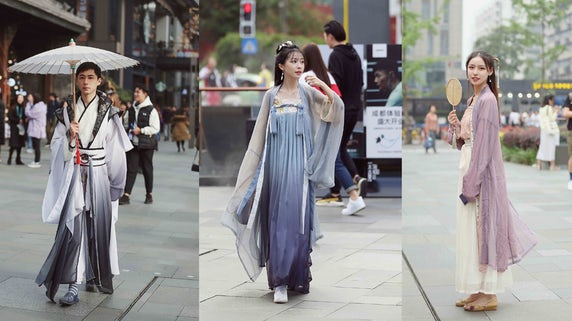A New Normal
Welcome to the YA's newsletter, October edition!
We wish that you're all doing well. With the announcement of the new traffic light system, it won't be long now until we can see how the 'new normal' will look like. As the rest of the world rapidly recovers their trade and lifestyles, it is important to remind ourselves to keep up and not be left behind.
#1. New Report by Asia New Zealand Foundation: Te Waipounamu and Asia

The Asia New Zealand Foundation has released a report on South Island businesses and their connections with Asia: Te Waipounamu and Asia: South Island business connections with Asia now and in the future.
For those of us in Auckland — where the YA is based — we often miss many of the links and connections between Asia and the South Island. This report surveys South Island businesses with existing links to Asia and those considering establishing links.
The research highlights the wide reach South Island businesses have in Asia, sharing challenges and lessons they have learnt and providing encouragement to businesses looking to grow in Asia. The authors touch on understanding exports and imports, the importance of growing these links, and the future of South Island businesses in Asia.
The report notes the challenges Covid-19 has imposed upon businesses, especially those who engage internationally. However, South Island companies have still been engaged and interested in Asian markets.
South Island firms constitute a considerable portion of business engagement with China, and while the report focuses on the entirety of Asia and its connections, 50% of the South Island businesses surveyed were trading with China, with some incredibly interesting insights.
A couple of highlights from the report were:
- 57% had been doing business with or in Asia for at least 10 years and 70% had been connected for at least five years.
- Businesses with existing links to Asia want to grow them more — 71% said they wanted to grow their business in Asia further.
The Asia New Zealand Foundation is convening a series of panel discussions with South Island chambers of commerce and businesses in upcoming weeks. Check out more information here.
An insightful read if you get the chance!
#2. Culture Desk: The Hanfu Revival and Guo Chao (国潮)

It’s no secret that fashion styles are nothing if not fleeting. Often, certain styles make comebacks. This has been the case for the Hanfu, the traditional clothing of the Han people in China, as well as for other fashion items incorporating traditional elements associated with ancient China. “The Hanfu Revival” is just one of the many trends in the broader movement known as “Guochao (国潮)”, meaning “national trend”. Guochao is linked to the concept of “cultural confidence (文化自信)”, which refers to China’s rising cultural self-esteem.
Hence you can see why many items of apparel, jewelry, or even make-up brands are releasing more products featuring traditional Chinese elements. Increasing numbers of young Chinese consumers are riding this wave and are mining the country’s rich history to express their heritage and identity through clothing and fashion items. This trend is also growing rapidly outside of China due to a large diaspora. The scale of this phenomenon can be seen through its footprint in e-commerce platforms. In 2019, an estimated 3.61 million people — a 77 percent jump from 2018 — identified themselves as Hanfu enthusiasts. Meanwhile, Chinese make-up brands like Florasis Cosmetics, who uses traditional motifs with modern luxury twists, are making their presence increasingly known globally via digital platforms.
While ancient and traditional fashion is making its return, Guochao isn’t just limited to fashion or traditionalism. The movement speaks about embracing Chinese-made brands and applies across a range of things, from food and beverages (Three Squirrels, Wa Ha Ha), to shoes (Anta, ERKE), to electric vehicles (XPENG), and beyond. Today, “Made in China” doesn’t carry its old stigma, instead it signifies China’s burgeoning leadership in innovation, design, and business.
#3. Business Desk: China in the NEW AGE
 The Helen Clark Foundation, alongside the Asia New Zealand Foundation, recently hosted an insightful webinar discussing the rise and ambitions of contemporary China, as well as some of the historic and current tactics of diplomacy, economics and trade.
The Helen Clark Foundation, alongside the Asia New Zealand Foundation, recently hosted an insightful webinar discussing the rise and ambitions of contemporary China, as well as some of the historic and current tactics of diplomacy, economics and trade.
Sharing their first-hand experience, former prime ministers Kevin Rudd and Helen Clark talked about their views towards the shift in China’s international approach over the past decade. These most notably included China’s shift from bi-lateral trade agreements to multilateral architecture (such as its entry into organisations like the United Nations) and its symbolic involvement with multilateral trade, such as with the Comprehensive and Progressive Agreement for Transpacific Partnership (CPTPP).
Both of these trajectories reflect the degree to which and speed with which China has changed over the years. The China of today is more confident, assertive, and increasingly more dominant.
“As China grows, and as others adjust to its greater sway in international affairs, it is important to continue to invest in international architecture, to give relationships structure and provide options to work through differences and de-escalate tensions.”
Watch the full webinar here.
| Have a piece you’d like us to feature or share? Or an idea/opportunity you would like us to offer? Do you have general questions/comments? Let us know through our socials below!If you’re reading this as a forwarded email, hello! Subscribe here.
Enjoy the newsletter and want more content like this? Become a NZCTA YA member here and get member discounts and special offers to all our events! Editors: David, Isabella, Melanie and Nick Disclaimer: Opinions expressed in this newsletter are the sole opinion of the NZCTA Young Associates and do not represent the opinions of the wider New Zealand China Trade Association or any of its executive committee. |

